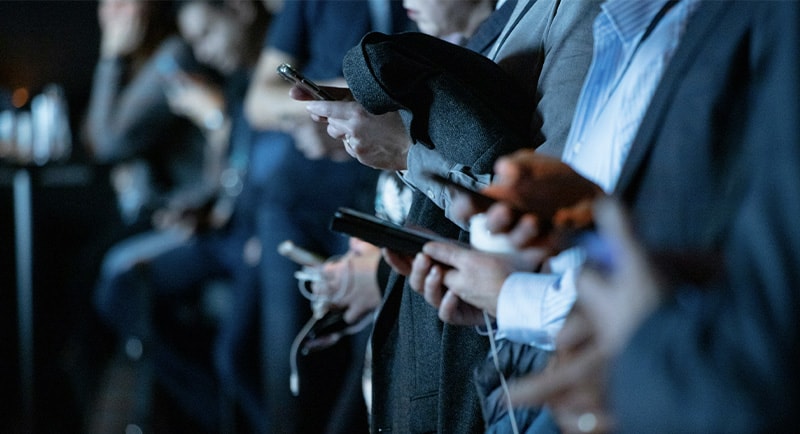By Nina Christian, marketing futurist and global marketing mentor
In today’s digital era, where the sheer volume of information feels like a relentless wave crashing over us, a common belief has crept in: volume is a virtue.
We think that the more information we gobble up, the better equipped we are to make decisions, right? Unfortunately this belief, while seemingly logical, often leads to the opposite – information overload, decision paralysis, and a constant stream of random inputs that can leave us feeling more overwhelmed than enlightened.
Many of us take some time to think about what we put into our physical bodies, through meal planning or identifying what foods we want to eat more/less of, so that we have more energy, feel more nourished and have healthier bodies. We decide what we want to eat, and when – how often we allow ourselves to indulge, and base it around what is realistic for our lifestyle – at home and at work.
We can apply the same principles to our diet of content. This way the power to control our content intake rests with US. Because the influences we open ourselves up to (by consuming their content) have a tangible impact on our outlook and wellbeing.
Of course, everyone performs better when they are energised, motivated and in the zone. Conversely, information overload, or ‘infobesity’, can cause us to become dull, think less clearly and function less effectively.
So when everywhere you look is “must-have” content, how can we work out what’s most beneficial to consume?
The Reality: Quality Over Quantity
Here’s a novel idea: What if we focus on the quality and relevance of the information instead of just the quantity? Imagine intentionally selecting our sources and focusing on content that resonates with our values, or current focus area.
Suddenly, information overload shifts into a streamlined flow of insights that actually enhances our work and personal growth.
Here are my top tips for how to work out what to focus on to get the most out of your content (and out of yourself).
Be Intentional
Before you dive into your next research binge or social media scroll, pause. Ask yourself what you’re looking for and why. This little moment of intentionality can help steer you through the sea of content more purposefully.
Curate Your Sources
Not everything out there is worth your time. Pick sources that consistently add value and align with your brand and personal ethos. This means choosing content that both challenges and inspires you, in moderation, and without overwhelming your senses.
Schedule Information Intakes
Designate specific times for consuming content. This isn’t just about discipline; it’s about lifestyle, protecting your mental health, and giving yourself the space to process and integrate this info into your strategy. Trust me, your brain will thank you. Trust Your Gut
Amid all the digital noise, don’t forget to listen to your intuition. Sometimes, the best insights come from within, informed by our experiences and values. Let your intuition guide you to what feels right to consume.
Mindful Consumption
There is content that drains and content that energises. Pay attention to how information affects you. If it’s inspiring and energising, great! If it’s causing stress or overwhelm, it might be time to hit the little “x” in the top right corner of your screen.
Connect with Purpose
Use information not just for personal gain but as a way to connect with others. Share insights, engage in discussions, and strengthen community connections based on shared values and learning. And not just online or in “content” but in your everyday conversations too!
Turning Accumulation into Action
If there are defined, relevant, easily actionable items that you want to recall for the future, I suggest you set up a tab in OneNote, Trello or Evernote, or whatever note-taking solution you use (iPhone Notes will do!) and jot that down, referencing where you heard it, when, by whom, and what the action step is. That way you can revisit it later when you’re in the right headspace for that item. Otherwise, you’ll just have more “stuff” your brain is trying to deal with that ends up swirling around for compartmentalising for later, and this is a huge contributor to mental fatigue.
Tackling information overload isn’t just about filtering content; it’s about changing our
approach to digital consumption. Remember, it’s not about who knows the most, but nurturing our creativity and mental agility, and through this, equipping us to develop connections through our own content and personal interactions that are both meaningful and lasting.
Your time is precious. Your energy is priceless. Spend it wisely.
See Also: Nina Christian: Marketing in the information overload age
–
Nina Christian is a Marketing Futurist, & Global Marketing Mentor who helps people do their marketing in a more human way.
She is a Certified Practicing Marketer (CPM), Life Member and Fellow of the Australian Marketing Institute & AMI State Chair (Vic) and for 20 years was director of marketing agency Braveda (Winner, Best Marketing Agency, Australian Marketing Excellence Awards).
Several years ago Nina saw the world of marketing shifting – this time as people became their own brands. With this, she created a new business as a thought leader, combining her expertise in brand building with personal positioning, resulting in a breakthrough praxis known as Marketing Me® which she delivers globally to business leaders, professionals and entrepreneurs.
She is the author of the book Marketing Me: Take Charge of Your Personal Brand and Make Your Mark on the World which helps professionals who want to market themselves authentically, but don’t understand what makes them truly unique and significant or have the confidence to express their value in a way that feels good.
Being a hands-on mum of five children, Nina Christian has developed a knack for simplifying complexity. As a result, her systems and processes are practical, accessible and impactful.
